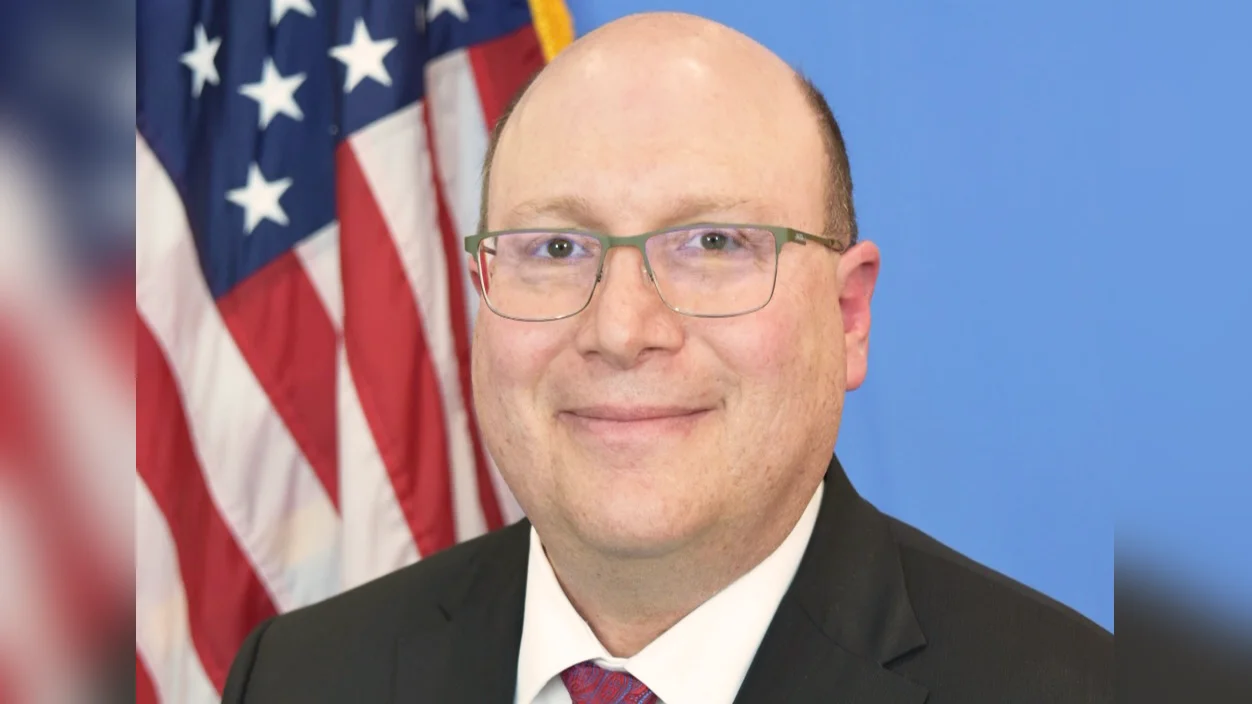The United States has expressed its views on the 2025 Nuclear Security Report at the International Atomic Energy Agency (IAEA) Board of Governors meeting in Vienna. Speaking on September 8, Howard Solomon, Chargé d’Affaires, ad interim, delivered a statement outlining U.S. positions and recommendations regarding international nuclear security efforts.
Solomon acknowledged the IAEA’s work over the past year and reaffirmed the U.S. commitment to supporting the agency’s central role in facilitating international cooperation on nuclear security. “While the responsibility for nuclear security rests with individual States, the United States upholds its firm belief in the IAEA’s central role in facilitating international cooperation to support States’ efforts, including through providing assistance, guidance, and advisory services, as outlined in this report. We appreciate the Secretariat’s continued efforts to maximize the cost efficiency, effectiveness, and impact of those efforts through application of results-based management principles. We request the agency continue these efforts and report on progress made to enhance nuclear security through reliable and meaningful metrics.”
Solomon highlighted recent IAEA initiatives addressing new technological developments such as advanced reactors and artificial intelligence. “Today’s rapidly evolving scientific and technological landscapes present both great opportunities and challenges, and the United States commends several specific IAEA efforts to help countries meet them. These include efforts to support the safe and secure development and deployment of advanced and small modular reactors, through such fora as the Nuclear Harmonization and Standardization Initiative and the October 2024 International Conference on SMRs and their Applications. Both included significant attention on nuclear security, which is important for gaining public confidence and realizing SMRs’ full, long-term potential. We also commend the Agency’s continued exploration of the benefits and challenges of artificial intelligence in the field of nuclear security.”
The statement reiterated U.S. backing for expanding adherence to international conventions related to physical protection of nuclear material: “The United States continues to strongly support the IAEA’s work to advance universalization of the Convention on the Physical Protection of Nuclear Material, as amended, and to assist States Parties in their implementation efforts. We welcome the Agency’s preparations for the Convention’s second Review Conference in 2027 and look forward to contributing to those preparations.”
As more countries consider launching or growing their nuclear power programs, Solomon noted that demand for IAEA assistance is rising but funding remains concentrated among a few donors: “With the increasing number of countries looking to embark on or expand their nuclear power programs, the demand for IAEA nuclear security assistance continues to increase. But this assistance, which is largely funded by voluntary contributions, continues to rely on just a few donors. This is simply not sustainable. The United States calls on all Member States to share in this burden. We urge others to contribute regularly – through financial or through in-kind support – to ensure the IAEA has the resources it needs to continue its nuclear security work.”
The U.S., however, voiced opposition regarding certain elements within this year’s report concerning gender parity initiatives: “Regrettably, the United States must reject paragraphs 82-84 in the Nuclear Security Report, which reference efforts related to gender parity that counter U.S. policies to promote equal opportunities for all, regardless of sex. We reject the use of U.S. funds to support these initiatives and encourage other countries and the IAEA to discontinue them in order to focus on priority objectives.”
On ongoing negotiations over a new multi-year Nuclear Security Plan (2026-2029), Solomon pointed out that political disagreements have so far blocked consensus among member states: “The United States also regrets that political disagreements have so far prevented Member States from achieving consensus on a 2026-2029 Nuclear Security Plan. We remind Member States that the Nuclear Security Plan is intended to be a technical workplan – not a forum for fundamentally political issues. We look forward to continuing to engage Member States on the plan and thank the Secretariat for the open, transparent, and well-organized process.”
Solomon concluded by reaffirming American support for global nuclear security measures led by IAEA: “The United States continues to stand firmly behind the IAEA’s nuclear security mission because we recognize that it directly complements and supports U.S. national security and economic priorities, from keeping our citizens safe from nuclear terrorism to supporting design and deployment of nuclear technologies that advance national energy economic social goals.”

